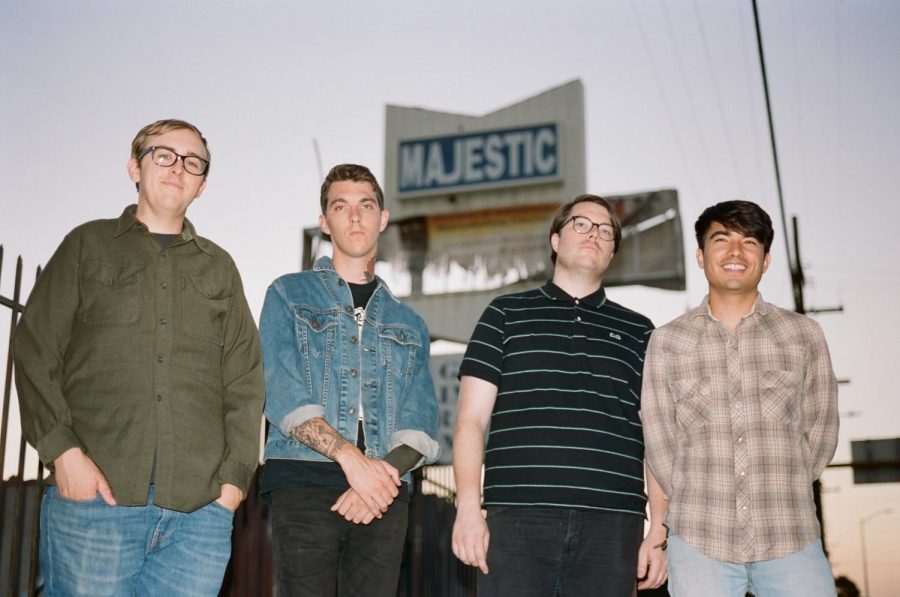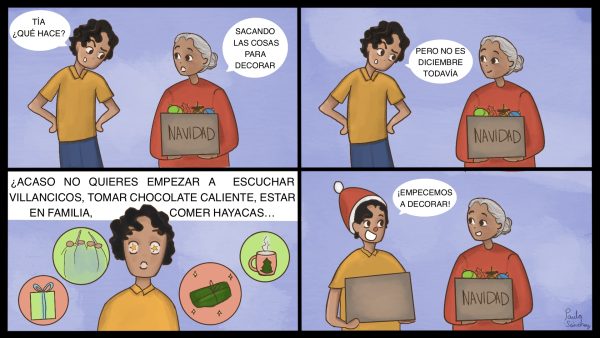For Joyce Manor, pop-punk popularity hasn’t been a ‘Constant Headache’
Joyce Manor will be coming to Chicago to play at Concord Music Hall, 2047 N. Milwaukee Ave., on November 15 with Wavves and Culture Abuse.
November 6, 2017
Getting old can be hard, especially when you’re in a pop-punk band with a cult following. Torrance, California’s Joyce Manor hit the music scene with its 2011 self-titled album. Since then, the band has released three more records, including 2016’s Cody, and gained a following that transcends the rigid genre purism many fall into by appealing to indie, emo and pop-punk aficionados alike.
Although Joyce Manor’s rise in popularity was gradual enough for the change to feel seamless, there’s some factors that baffle members. For example, there is a fan theory that the introspective song “Constant Headache” from the band’s self-titled release was written from a dog’s perspective.
Ahead of Joyce Manor’s Nov. 15 show with Wavves at Concord Music Hall, 2047 N. Milwaukee Ave., The Chronicle spoke with lead singer and guitarist Barry Johnson about how fans have changed with the times, what Joyce Manor’s future holds and when The Smiths’ Morrissey takes it too far.
THE CHRONICLE: How have you responded to Joyce Manor’s growth over the years?
BARRY JOHNSON: It wasn’t necessarily overnight. It’s been pretty gradual, so I don’t think we’ve had a super hard time adjusting to the size [of] rooms we tend to play these days. I think our first couple shows in Chicago were in lofts and people’s apartments. It can be tough to play rooms that are bigger than what you’re used to because it’s different to try to form a connection with the crowd when there’s more of them, and you’re not quite up close to them, but we’ve been pretty lucky in that our growth has been gradual.
Is there anything you weren’t expecting from growing in popularity?
A band that’s maybe as abrasive as us wouldn’t become as popular as we are. Our songs are really short, and there’s a lot of unconventional things about our band that haven’t prevented us from getting bigger.
What’s it like growing as an individual while also being in this youthful scene?
It comes with its challenges, but it just keeps you more in touch with what’s going on, and maybe it ages you slower mentally, which has its pros and cons. It’s definitely fun playing to people of that age group. If you play to a room of 40-year-olds, you’re not going to get the same kind of enthusiastic response.
On Cody, there are songs like “Eighteen” that feel like coming-of-age songs. What was the process of writing them?
“Eighteen” is the opposite where it’s about feeling old. It’s an already-came-of-age song instead of a coming-of-age song. It’s very reflective. That’s why I’m proud of that [song] lyrically because songs about growing up are tired. There’s not much to be said about that that hasn’t been said in a million pop-punk songs.
How do you feel about fans who try to dig out the meanings in your lyrics? “Constant Headache” comes to mind.
I’m puzzled as to why so many people have asked me if [that song] is from the perspective of a dog. I can’t pin down exactly which line it is that suggests that. Clearly, there’s something there because it’s too strange of a coincidence unless one person posted a theory on Reddit or something.
How do you think your experience as a band in this decade may have been different if you were coming up with bands like New Found Glory?
I think we would have sold a lot more CDs. There’s positive and negative aspects to [being a band in this decade]. I had the internet when I was younger, but it wasn’t as social media-focused as it is now. I remember writing emails to bands, and it’s a lot more streamlined now. It’s easier to get in touch with bands. But for that same reason, it used to be only the diehards would take the time to get in touch, but now you have any casual fan, whether it’s messaging you on Instagram or commenting on photos, vying for tiny pieces of your attention constantly rather than the intensely devoted fans sending mail or emails or waiting by the van. I understand the impulse, but it’s strange how easy it is now. It takes no time or effort.
What’s with all the Morrissey tweets on the band’s Twitter?
I’m a huge Smiths [and] Morrissey guy, and I wish he would stop speaking or making new music. A big part of my identity is being a Morrissey fan. It’s like being a huge fan of a sports team,and they’re doing terribly. It bums you out.
What are your thoughts on some other artists who had their heyday some decades back and are trying to come back for a revival?
Some people get a lifetime pass, and Morrissey is one of those [people] for me. He has such an amazing body of work that [he] can put out as many bad albums as [he wants]; it doesn’t matter. I feel that way about Weezer. There’s some bands [that aren’t] going to be in their prime forever, and that’s alright. It’s the same with sports. You can’t expect somebody in their 50s to perform the way they did in their 20s. It’s always great when you see someone make an excellent record late in their career, but I don’t think you can hold people to the same standard forever. At a certain point, it’s good on them for still sticking with it. Sometimes, people like to be mean to people just for getting old, especially on the internet.
Brand New and Yellowcard are examples of bands retiring. Has that led you to think of Joyce Manor’s future?
When I was younger, after our first record, I was like, “I don’t know if we should do a second record.” I was more obsessed with some kind of legacy or keeping the body of work minimal and intact. I’m happy to be doing it, and I love playing music, meeting bands, recording and writing songs. I’ll do it forever, even when no one is showing up. We don’t have any plans to slow down. We’re working on a record right now, and it’s some of our best stuff we’ve ever done.
What can fans expect from your new project?
I’m not sure. We’re still in the writing stages, so sometimes we’ll write a song that will determine the tone we want to go for with the record. We’ll think we’re working on one thing and then stumble into something and be like, “Oh my God, this is what we should do.” You typically tend to find those things accidentally. I’m not sure that we’ve found it yet.







